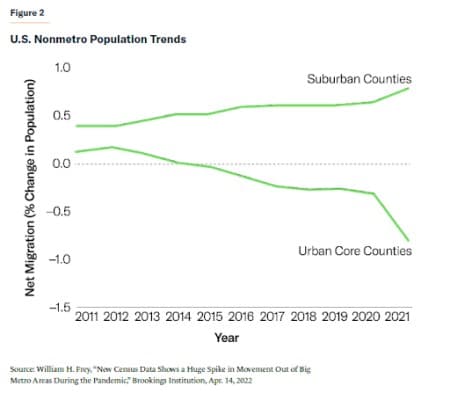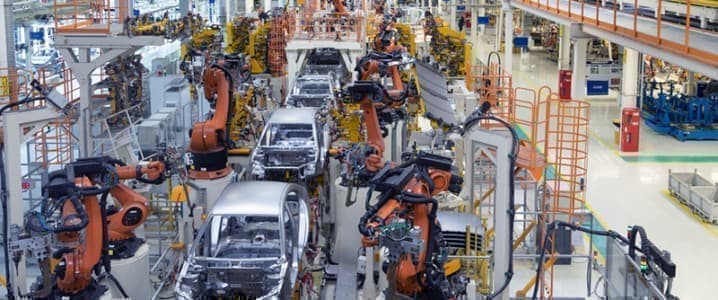EV policies—defacto mandates, if you please—are built on three claims according to a new report by the Manhattan Institute: EVs will lead to profound reductions in CO2 emissions, EVs will soon be cheaper than ICE cars, and the use of the automobile in general is subject to an impending “generational realignment”.
If any of the above turn out to not be true, the current government rush to subsidize EVs and push out and ban ICE vehicles from the markets will be looked on by history as pure folly, the report claims.
The report first looked at the claim that EVs will lead to profound reductions in CO2 emissions. Of course, EVs will not use gasoline—a fossil fuel that must be pumped up from the ground as crude oil and then refined into gasoline and diesel for ICE vehicles to burn. This is the end of the advertisement for CO2 emission reductions for electric vehicles. But the other half of the equation must acknowledge the intensity of mining for those critical minerals necessary for EV batteries. It also must be logically offset by the power generation needed to charge the EVs—some of which is powered by the dirtiest fossil fuel, coal. The truth is, this equation hasn’t yet been quantified with any real degree of certainty. Yet, EV advocates—and policymakers—routinely misrepresent that equation by leaving out the second half: the part that would offset the CO2 emissions prevented by not burning gasoline through mining and charging.
The report pointed to another research report by the U.S. Argonne National Labs, which said that emissions data on these battery minerals “remain meager to nonexistent, forcing researchers to resort to engineering calculations or approximations.” Even the IEA—champion of the EV movement—has stated that the emissions intensity of these critical minerals can “vary considerably across companies and regions.” Related: Gasoline Prices Inch Up As Crude Soars
Indeed, as the report highlighted, many “studies” into EV emissions analyzed EVs with battery packs that are half the size of the ones the most popular EVs use.
But you are supposed to believe that it’s far more simple than that.
It’s hard to believe that this misrepresentation is a simplification for the ease of presentation and not a deliberate attempt to obfuscate the rather complex nature of assessing EV’s benefits vs ICE vehicles.
Whether intentional or not, policies are being made today that seek to hasten the transition to EVs under the guise of some grand CO2 benefit that might not actually be there, or that might be significantly smaller. And they are willing to spend billions upon billions to implement it—your billions.
Just as Cheap
And that’s just one truth. The second premise that the EV revolution is built on is that EVs will be, or already are, cheaper than ICE vehicles. Media and governments have presented to the consumer an again rather simple formula that assesses the upfront cost of an EV, which they acknowledge could be higher than your average ICE vehicle, but offset by rather generous figures that show how much could be saved by not purchasing gasoline and saving on maintenance over the life of an EV.
Of course, EVs come with a hefty price tag. This must be acknowledged by policymakers because it is easy enough to vet. Prices, however, are coming down, with Ford most recently reducing its price of the Lightning Pro by about $10,000 to $50,000. The extended range Lightning was reduced by $6k. This follow’s Ford’s Mach-E price cut, and BMW’s aggressive EV price cut in March.

This is hardly a reflection, however, of costs coming down for the automakers. In fact, in May, Ford said that EV prices coming down were “a worrying trend,” because costs are not coming down—prices need to come down to sell their vehicles as Tesla continues to outshine Big Auto.
Where Is The Generational Realignment?
The third truth the report tackled was that there is some generational realignment in the works as far as how the newest generation uses vehicles. Whether an impending change is coming or not cannot possibly be seen, but history does not indicate that we are on that path.
And in fact, there is already a shift underway from urban counties to suburban ones, where vehicles are as common as shoes, and the miles driven are more.

That hasn’t stopped regulatory agencies such as the EPA from proposing strict tailpipe emission rules that would essentially force Big Auto to produce mostly EVs by 2032.
But the assumption uncertainties that have led to such policies “could lead to havoc if U.S. and European regulators enshrine ‘green disclosures’ in legally binding ways” Manhattan Institute senior fellow Mark Mills writes in the report’s conclusion, adding that if ICE bans are implemented, it could lead to a misallocation of capital in the “world’s $4 trillion personal mobility industry” and constraints on freedom.
By Julianne Geiger for Oilprice.com
More Top Reads From Oilprice.com:
- Future Of Oil Demand Is Brighter Than You’ve Been Told
- U.S. Shale Challenges OPEC With Record Production In 2023
- Russia To Overtake Saudi Arabia As The Largest OPEC+ Oil Producer


















First EVs aren’t cheaper than ICEs even long term. EVs come with a hefty price tag. The fact that they don’t run on gasoline and don’t need maintenance over their life is offset by rising costs of electricity whose rise is, as a routine, much faster than that of gasoline.
EVs aren’t, in the final analysis, less polluting than ICEs. Though they don’t use gasoline and therefore they don’t produce emissions but the power generation needed to charge their batteries is mostly generated by coal, the dirtiest fossil fuel. To this could also be added the amount of fossil fuels needed to power the mining of the metals from which the EV's batteries are made. In fact, ICEs are now environmentally friendlier than EVs particularly when emissions from lithium mining, manufacturing and eventual de-commissioning of the batteries are taken into consideration.
If ICEs are banned by government legislations, it is most probable that their owners might opt for using them longer rather than pay through the nose for EVs. If economies of scale enter into this equation, then millions of ICEs won’t be replaced for many years leading to slump in EV production and billions of dollars losses for their manufacturers.
There are currently 1.4 billion ICEs on the roads worldwide compared with 20 million ECs or 1.42%. How long will it take EVs to replace ICEs globally?
Dr Mamdouh G Salameh
International Oil Economist
Global Energy Expert
Do you still have to pay for electricity and gasoline?
Firstly EVs are cheaper than ICEs long term, and increasingly in many markets are also similarly priced or cheaper to purchase than ICE vechiles. The fact that they don’t run on gasoline and don’t need maintenance over their life increase the savings long term. While fossil fuels prices are highly volatile and prone to shocks, such as the Russian invasion of Ukraine, electricity prices are more stable and predictable long-term.
EVs are in the final analysis, less polluting than ICEs. They don’t use gasoline and therefore they don’t produce emissions however the power generation needed to charge their batteries is partially generated by coal, the dirtiest fossil fuel. Coal is about one third of the electricity generation mix currently but will halve to about one sixth over the next decade. As ICE vechiles age they pollute more however as EVs age they pollute less due to a cleaner grid.
EV naysayer articles promoted mainly by fossil fuel companies ignore the emissions from the extraction processing and transport of fossil fuels while for EVs they include the emissions from mining and production of batteries. A number of these articles only include the emissions from the fuel burning of ICE vechiles while for EVs the add in the totals life cycle emissions from mining manufacturing of vechiles and recycling.
In fact, EVs are significantly more environmentally friendlier than ICEs.
Sales of ICE vechiles peaked in 2017 and are in terminal decline. While EV sales are doubling every 18 months to 2 years, so any car manufacturer not making the transition will be at high risk of failure. This year EVs sales will be around 20% of the global market and will likely rise to over 50% of the global market in late 2025.
By the end of 2023 there will around 40 million evs on the road and by the end or 2025 there will be 80-100 million on the roads.
By 2025 at the latest, oil demand growth from all other sectors will not be sufficient to make up from reduced demand from the road transport sector.
Slowly but surely the oil age is coming to an end.
Well, this is exactly the intent. Constrain of freedoms, false fear of climate catastrophe brought to you by the climate religion evangelists, and total control of population.
Of course all these is brought to you by One World Government called UN, paid and controlled by WEF, Bill Gates, Soros, Rockefeller and others in the billionaire's cast. They are doing it for our own good, so they say, to save the planet, and the mankind. However the results that we can see already are just opposite, more poverty around the world because of expensive energy, tsunami of migration from the hungry population across the world, health problems because of malnutrition, internal and global conflicts, and wars.